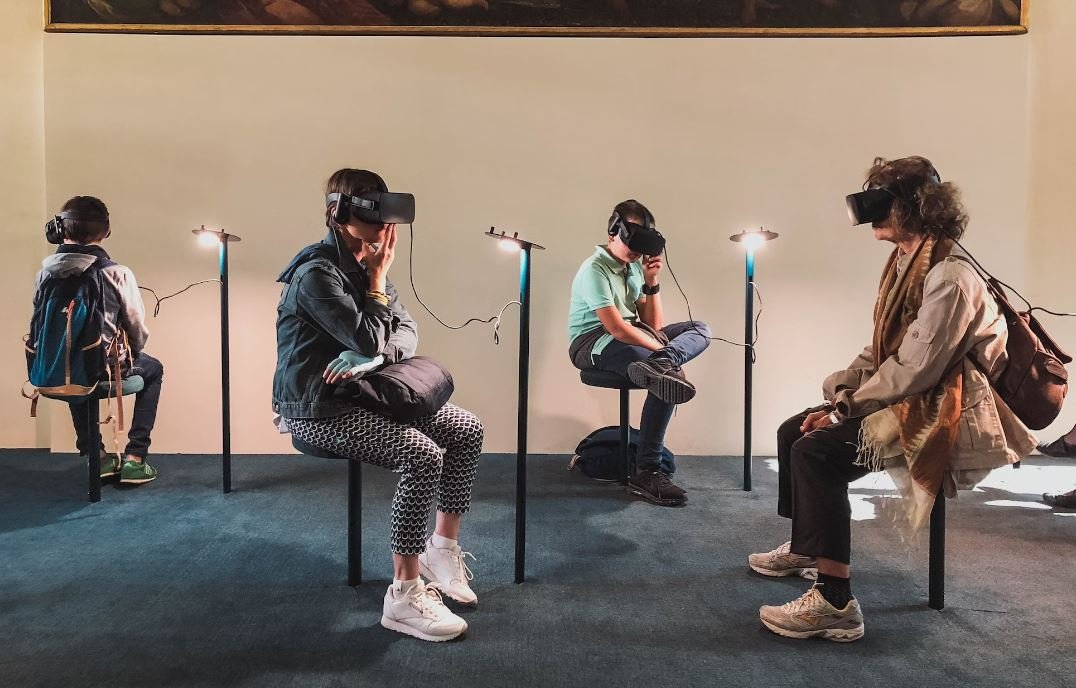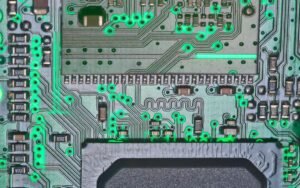AI vs Quantum Computing
In today’s rapidly advancing technological landscape, both Artificial Intelligence (AI) and Quantum Computing have emerged as cutting-edge technologies that hold immense potential for shaping our future. While AI focuses on creating intelligent systems that mimic human cognitive processes, Quantum Computing leverages the principles of quantum mechanics to solve complex problems at exponential speeds. In this article, we will explore the key differences between AI and Quantum Computing, their respective applications, and how they are revolutionizing various industries.
Key Takeaways:
- AI and Quantum Computing are two distinct technologies that harness different principles to achieve their objectives.
- AI focuses on creating intelligent systems that mimic human cognitive processes, while Quantum Computing leverages quantum mechanics to process information at extraordinary speeds.
- AI finds applications in various industries such as healthcare, finance, and automotive, while Quantum Computing has potential use cases in cryptography, optimization, and drug discovery.
Artificial Intelligence (AI) is a branch of computer science that aims to create smart machines capable of performing tasks that usually require human intelligence. AI systems rely on algorithms and vast amounts of data to learn from and make informed decisions or predictions. The field of AI encompasses machine learning, natural language processing, and computer vision, among other subdomains. AI technologies are being widely adopted in industries such as healthcare, finance, and automotive to enhance efficiency and accuracy in operations.
AI systems are constantly learning and evolving, with the ability to improve performance through experience.
Quantum Computing, on the other hand, leverages the fundamental principles of quantum physics to process information. Traditional computers store and process data in bits, which can represent either a 0 or a 1. In contrast, quantum computers use quantum bits, or qubits, which can exist in multiple states at once through a property known as superposition. This allows quantum computers to perform complex calculations much faster than classical computers.
Quantum Computing has the potential to solve computational problems that are currently intractable for classical computers.
Applications and Potential
AI has gained significant traction across numerous industries and is driving transformative changes. Some key applications of AI include:
- Healthcare: AI is used in diagnosing diseases, analyzing medical data, and predicting patient outcomes, leading to improved personalized medicine.
- Finance: AI algorithms enable intelligent trading decisions, risk assessment, fraud detection, and customer support in the finance sector.
- Automotive: AI powers autonomous vehicles, enhancing their ability to perceive the environment and make informed decisions for safe navigation.
Quantum Computing‘s potential applications span beyond conventional computing capabilities. Some notable areas include:
- Cryptography: Quantum Computing has the potential to break encryption algorithms widely used for secure communication, necessitating the development of quantum-resistant cryptography.
- Optimization: Quantum Computing can optimize complex systems, such as supply chains or logistics networks, leading to more efficient resource allocation.
- Drug Discovery: Quantum Computing can accelerate the screening of vast chemical databases, aiding in the discovery of new medications and materials.
Comparison of AI and Quantum Computing
| AI | Quantum Computing | |
|---|---|---|
| Processing Speed | Relies on classical computers’ processing speeds. | Capable of exponential calculations and faster problem-solving. |
| Data Dependencies | Relies heavily on large datasets and training. | Data-independent; solves complex problems by manipulating qubits. |
| Current State | AI technologies are more mature, with widespread adoption in various industries. | Quantum Computing is still in the early stages of development but holds immense potential. |
Ongoing efforts are being made to merge the capabilities of AI and Quantum Computing to create more powerful systems. Combining AI’s ability to process and analyze vast amounts of data with Quantum Computing‘s exceptional processing power has the potential to revolutionize fields such as drug discovery, climate modeling, and optimization problems.
The convergence of AI and Quantum Computing has the potential to unlock unprecedented possibilities for solving complex real-world problems.
Conclusion
The race between AI and Quantum Computing continues to unfold, driving innovation and transforming industries. While AI technologies are currently more mature and adopted extensively, Quantum Computing holds the promise of solving problems that are currently beyond the reach of classical computers. Both AI and Quantum Computing are reshaping the future of technology and paving the way for groundbreaking advancements in numerous sectors.

Common Misconceptions
AI vs Quantum Computing
There are several common misconceptions surrounding the fields of artificial intelligence (AI) and quantum computing. Let’s take a look at some of these misconceptions and clarify the facts:
Misconception 1: AI and Quantum Computing are the same thing.
- AI and quantum computing are distinct fields with different goals and applications.
- AI focuses on building intelligent systems that can mimic human cognition and perform tasks autonomously.
- Quantum computing aims to use principles of quantum mechanics to solve computational problems that are not feasible for classical computers.
Misconception 2: AI will lead to the development of sentient machines.
- AI refers to the development of machines that can perform tasks intelligently, but it does not imply human-like consciousness.
- Current AI systems are designed to solve specific problems and lack the ability to possess subjective experiences or self-awareness.
- The concept of sentient machines, often popularized in movies and science fiction, is still far from reality.
Misconception 3: Quantum computing will make classical computing obsolete.
- Both classical and quantum computing have unique strengths and limitations.
- While quantum computers have the potential for exponential speedup in certain tasks, they are not well-suited for general-purpose computing.
- Classical computers are extremely efficient for many types of computations and will continue to play a crucial role in various scenarios even as quantum computers advance.
Misconception 4: AI and quantum computing will solve all of humanity’s problems.
- While AI and quantum computing hold great promise, they are not magical solutions to all problems.
- AI systems require careful design, training, and verification, and may face ethical, privacy, and bias challenges.
- Quantum computing, despite its potential, is still in its early stages and faces significant technical hurdles before it can achieve widespread practicality.
Misconception 5: AI and quantum computing will destroy jobs and render human involvement obsolete.
- AI and quantum computing are tools that can enhance human capabilities rather than replace them.
- While certain jobs may be automated or transformed by AI, new opportunities for human workers and collaboration in these fields will also emerge.
- Human expertise, creativity, and empathy remain crucial in decision-making, problem-solving, and addressing complex societal issues.

Introduction
Artificial Intelligence (AI) and Quantum Computing are two emerging technologies that are revolutionizing various sectors. AI focuses on creating intelligent systems that can mimic human behavior, while Quantum Computing utilizes the principles of quantum mechanics to perform complex calculations. In this article, we will explore different aspects and comparisons between these transformative technologies.
Table 1: Growth in AI and Quantum Computing Investments
Investments in AI and Quantum Computing have skyrocketed in recent years, reflecting the growing interest and potential of these technologies. This table illustrates the significant increase in investments:
| Year | AI Investments (in billions) | Quantum Computing Investments (in billions) |
|---|---|---|
| 2016 | 4 | 0.2 |
| 2017 | 12 | 0.5 |
| 2018 | 25 | 1.2 |
| 2019 | 40 | 2.5 |
| 2020 | 60 | 4 |
Table 2: Computational Power Comparison
One of the key distinctions between AI and Quantum Computing lies in their computational power. The following table showcases the computing capabilities of both technologies:
| Technology | Computational Power |
|---|---|
| AI | Can process massive amounts of data in parallel |
| Quantum Computing | Utilizes qubits to perform calculations exponentially faster |
Table 3: Applications of AI and Quantum Computing
AI and Quantum Computing have diverse applications across various sectors. The table below highlights some major application areas:
| Technology | Applications |
|---|---|
| AI | Autonomous vehicles, healthcare diagnostics, fraud detection, virtual assistants |
| Quantum Computing | Cryptography, drug discovery, optimizing complex systems, weather forecasting |
Table 4: Current Limitations
Although AI and Quantum Computing offer immense potential, they also face certain limitations. This table presents some current challenges:
| Technology | Limitations |
|---|---|
| AI | Limited explainability, data bias, lack of common sense reasoning |
| Quantum Computing | Error rates in qubits, decoherence, scalability |
Table 5: Ethical Considerations
As AI and Quantum Computing advance, ethical considerations become crucial. The following table highlights some ethical concerns associated with these technologies:
| Technology | Ethical Considerations |
|---|---|
| AI | Data privacy, job displacement, algorithmic biases |
| Quantum Computing | Cryptography implications, potential hacking vulnerabilities |
Table 6: Notable Companies
Several companies are leading the AI and Quantum Computing advancements. Here are some notable players in each field:
| AI Companies | Quantum Computing Companies |
|---|---|
| IBM | |
| Amazon | D-Wave Systems |
| Microsoft | Rigetti Computing |
Table 7: Energy Consumption
Energy consumption is an important aspect when evaluating the environmental impact of these technologies. This table compares the energy requirements:
| Technology | Energy Consumption (in kilowatt-hours) |
|---|---|
| AI | Varies depending on model and training |
| Quantum Computing | Extremely low energy requirements |
Table 8: Theoretical Foundations
To better understand AI and Quantum Computing, it is essential to explore their theoretical foundations. This table briefly summarizes their foundations:
| Technology | Theoretical Foundation |
|---|---|
| AI | Machine Learning, Neural Networks, Deep Learning |
| Quantum Computing | Quantum Mechanics, Superposition, Entanglement |
Table 9: Speed Comparison
Speed is a crucial factor when evaluating the performance of AI and Quantum Computing. The following table compares their processing speed:
| Technology | Processing Speed |
|---|---|
| AI | Fast and near real-time (millisecond range) |
| Quantum Computing | Exponential speedup for certain calculations |
Table 10: Future Outlook
Both AI and Quantum Computing have a promising future with significant potential for advancements. This table illustrates some expected developments:
| Technology | Expected Developments |
|---|---|
| AI | Enhanced explainability, improved decision-making algorithms, wider adoption in industries |
| Quantum Computing | Higher qubit counts, error correction techniques, practical applications in several fields |
In summary, AI and Quantum Computing are two transformative technologies that hold vast potential and are driving innovation across numerous sectors. While AI focuses on intelligence and mimicking human behavior, Quantum Computing utilizes the profound principles of quantum mechanics. Despite their differences, both technologies face limitations and ethical concerns that need to be carefully addressed. As advancements continue, AI and Quantum Computing are expected to reshape industries and society, paving the way for a new era of technological breakthroughs.
AI vs Quantum Computing
FAQ
What is artificial intelligence (AI)?
What is quantum computing?
How does AI differ from quantum computing?
In what ways can AI benefit from quantum computing?
How can AI impact the development of quantum computing?
Are AI and quantum computing mutually exclusive?
Are there any challenges to integrating AI and quantum computing?
Can quantum computing render AI obsolete?
What are the potential future implications of AI and quantum computing?
Where can I learn more about AI and quantum computing?




